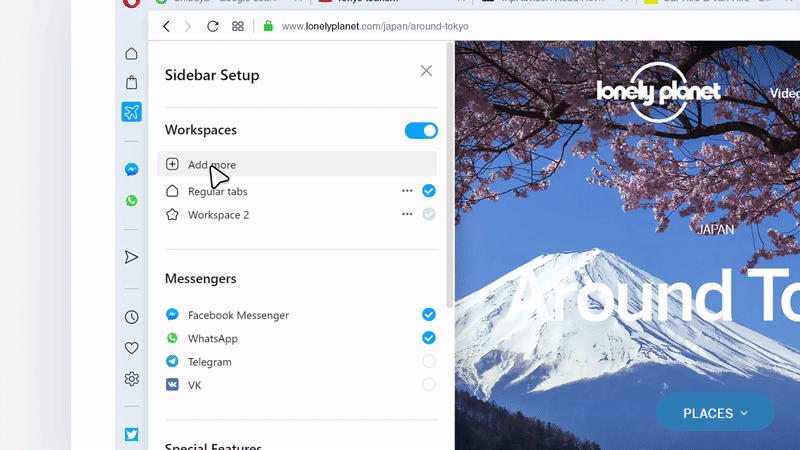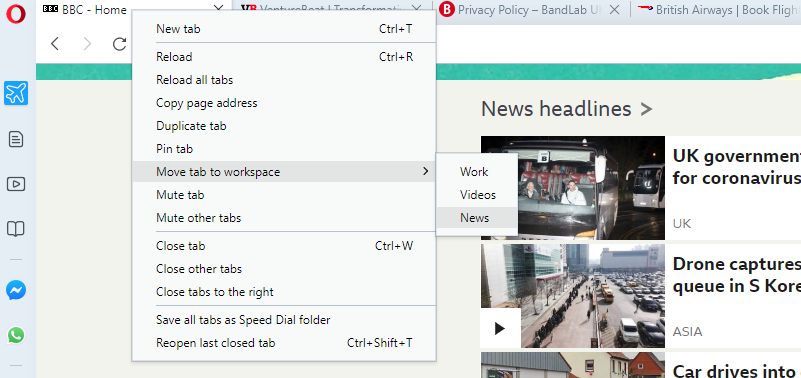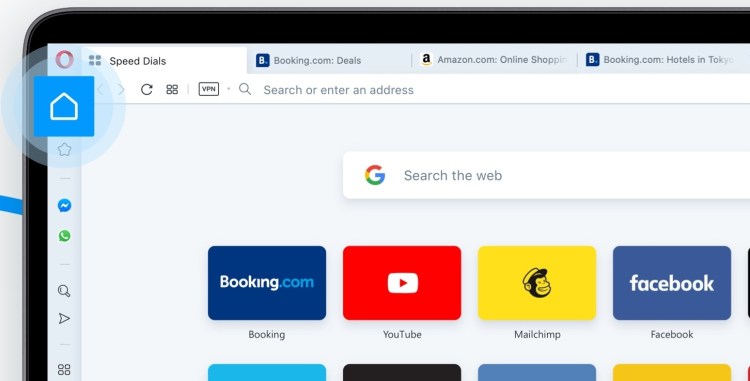Opera is introducing a handful of new features to its desktop app in an effort to bring order to your browser tab chaos.
With Opera 67 rolling out today, the Norwegian company is introducing a new feature called “workspaces” that allows users to group their active tabs into categories — particularly useful for people who use the same PC for work and personal browsing. The feature has already been available for a few months in a beta version of the Opera desktop app, and it follows a similar feature that has been tested in experimental versions of Google Chrome for at least a year.
“Everybody wants their environment to be more tidy, ideally without having to clean,” noted Opera product director Joanna Czajka. “Workspaces let you get organized from the first moment you use them, without you having to learn how to use a new tool.”
How it works
Workspaces will likely appeal to anyone who has dozens of tabs open in their browser, spanning work emails, social networks, ecommerce sites, video-streaming, gaming, travel, and the rest. Users can create up to five groups and assign a unique name and icon to distinguish each category at a glance.
June 5th: The AI Audit in NYC
Join us next week in NYC to engage with top executive leaders, delving into strategies for auditing AI models to ensure fairness, optimal performance, and ethical compliance across diverse organizations. Secure your attendance for this exclusive invite-only event.

Above: Customizing “workspaces” for tab-grouping in Opera
The active workspace is highlighted in blue, and users simply click on a different icon in the sidebar to switch to another group.

Above: Switching between workspaces in Opera
To allocate a tab to a specific workspace, right-click the tab in question and scroll to the “Move tab to workspace” option, where you’ll see all the available groups. This is very similar to the way the tab-grouping feature works in Google’s experimental version of Chrome.

Above: Opera: Assigning a tab to a difference workspace
Other notable new facets of Opera 67 include a feature that highlights duplicate tabs — hover your mouse cursor over a tab and if there are any other tabs open with the same URL, the Opera browser will highlight each of them. This is about making it easier to spot redundant tabs and bring further order to the madness.

Above: Opera now highlights duplicate tabs
Finally, Opera 67 now sports a new feature that lets users cycle through tabs visually using the Ctrl+Tab key combination, which makes it easier to switch tabs without having to manually click on each one — a little thumbnail reveals what page is on each tab.

Above: Opera tab-cycler
Founded in 1995, Opera is one of the better-known “alternative” cross-platform browsers out there, and although its market share currently languishes behind the likes of Chrome, it still claims some 68 million users on Windows desktop alone. Opera said it grew its PC user base by around 17% between 2018 and 2019 and that it’s used by some 350 million people across all platforms globally.


